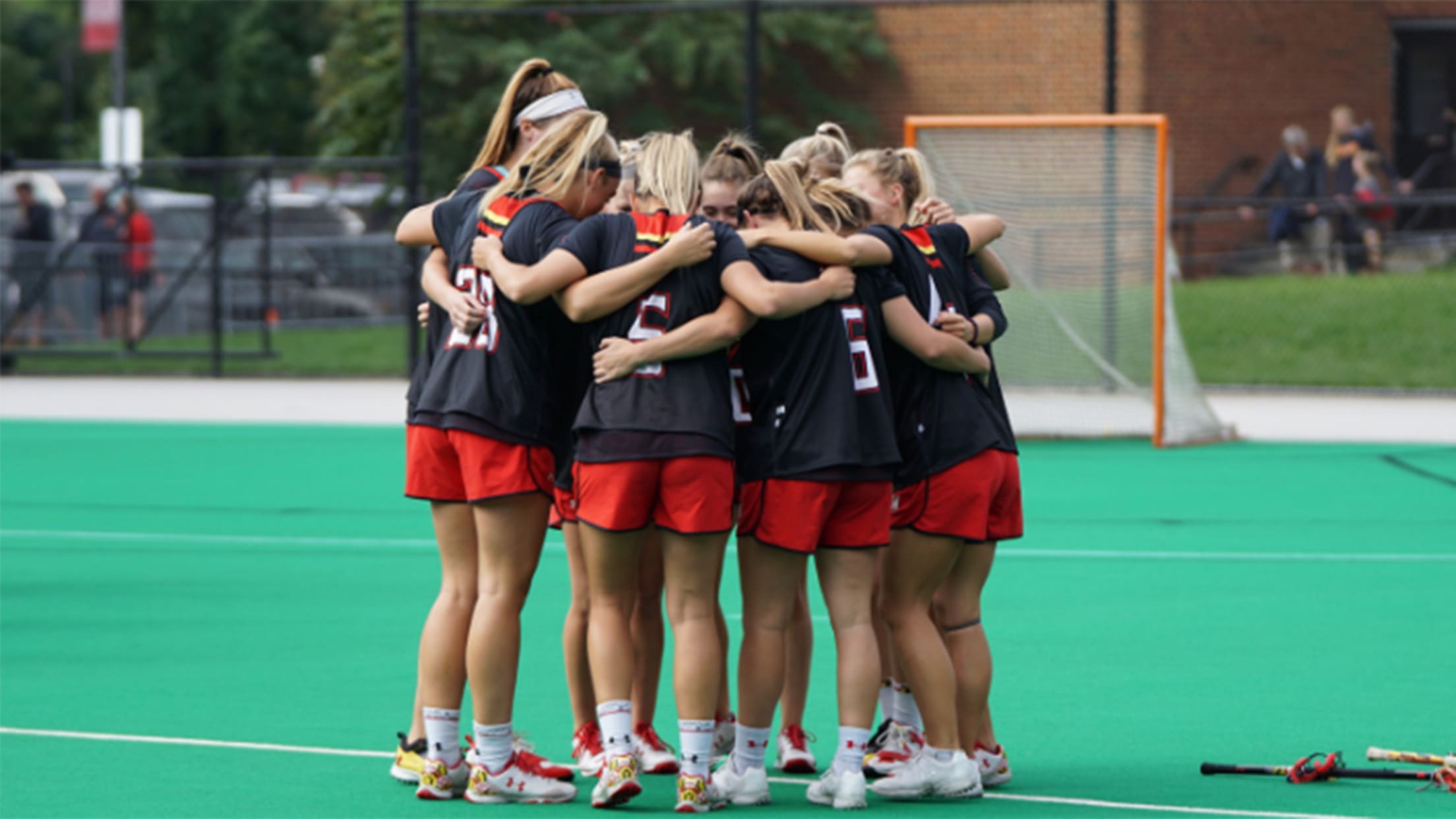TrueSport: January 2019

How to get back in the game with a stronger team mindset, the importance of accountable sports parents, how to teach accountability in a positive way and more this month from TrueSport.
Trending
How to get back in the game with a stronger team mindset
All teams face challenges and disappointments, and one of a coach's most important roles is teaching young athletes how to deal with setbacks and come back stronger. According to Dr. Jim Afremow, PhD, sports psychologist and author of The Champion's Comeback: How Great Athletes Recover, Reflect, and Reignite, successful comebacks begin with a team's mindset.
Afremow has identified what he calls the "Seven L's" for creating a successful comeback:
- Let go
- Look for support
- Love the Game
- Learn, Labor
- Learn optimism
- Lean on your mental game

While you can learn more about all seven in his books, three of particular interest to coaches are: Let Go, Learn Optimism, and Lean on Mental Game.
Let's go
"Ruminating about our mistakes and failures is like holding on to a brick," says Afremow. Some young athletes benefit from a more literal demonstration, so he recommends bringing an actual brick to practice, discussing the importance of "releasing the brick" and being freed from the weight of past mistakes. Some teams adopt "release the brick" as a mantra and even pantomime dropping a brick as a physical cue following an error.
Coaches have to set a consistent example to reinforce the "let go" attitude, which means not dwelling on setbacks. "Getting over a tough loss or a poor performance is about moving forward," says Afremow.
Encourage athletes to shake off mistakes and focus on the next play. After a loss, acknowledge what went wrong, but emphasize what went well and what can be improved.
Learn optimism
"Optimists see success as personal, permanent, and pervasive, whereas failure is situational, short-lived and specific," says Afremow. "Optimists are more likely to sustain success and bounce back when knocked down."
Humans have a natural inclination to be critical and learning to be consistently optimistic can require a great deal of positive reinforcement. Dr. Afremow recommends adhering to a 5 to 1 praise-to-criticism ratio when providing feedback to individuals and whole teams.
Expressing five positives for each negative may not always come easily, but the impact on young minds is worth the effort. It is a good idea for a coach to occasionally track comments (or have an assistant coach do so) to see how well they are actually balancing positive and negative feedback.
Lean on mental game
Developing an effective mental toolbox during childhood can help prepare athletes for success throughout their academic, personal and professional lives. Dr. Afremow reminds coaches of three techniques they can teach to help young athletes develop:
- Mindfulness: "Mindfulness is paying attention to what's happening in the moment," says Afremow. Find moments during stretching, breaks, or practices for athletes to be quiet and mindful in the moment. Focus on fully experiencing what's happening now instead of what just happened or is about to happen.
- Visualization: Visualization is doing mentally what you do physically. Effective visualization requires training and practice. Facilitate brief exercises with individual athletes and the team. Guide them through the process of "seeing" and "feeling" themselves executing particular skills and achieving success.
- Body Language: "Body language is nonverbal communication through postures, gestures, facial expressions and eye movements," says Afremow. When athletes exhibit positivity they invite positivity, even following mistakes.
In all areas of life there will be wins and losses, triumphs and setbacks. Teaching young athletes to lose and come back stronger is as valuable as teaching them to win.
To read more about Dr. Afremow's Seven L's and his newest book, The Young Champion's Mind, visit Gold Medal Mind.
Parents
The importance of accountable sports parents
Youth sports parents play many different roles: former (or current) athlete, coach, fan, motivator, role model, critic and maybe most importantly, influencer.
Studies have shown that family members may influence an athlete's involvement and achievement in sport even more than coaches. Parents also are the first and most critical determiners in whether or not children reap the social benefits of playing sports.
This is why it is so crucial that sports parents are aware and accountable for their actions, and how those influence their young athletes.

Accounting for your attitude
Parental encouragement is significantly related to a child's attraction to and competence in playing sports. Parents who provide positive encouragement instill a greater sense of enjoyment, ability and motivation in their child.
Research done by Windee M. Weiss, Ph.D. of the University of Northern Iowa emphasizes the importance of parents staying accountable for and modeling good behavior, and helping their children interpret their sport experiences. Parents are critical in helping their child develop coping strategies to deal not only with competition, but also with losing. Children's perceptions of their parents' interest in their playing sport also predict their lasting involvement in sport.
Studies done by the University of Minnesota's Diane Wiese-Bjornstal found that the way girls perceive their parents' assessment of their abilities predict their likelihood of playing and staying in sport. That is, if their parents do not have confidence in their abilities, neither will they.
And dads, are you listening? Studies have found that fathers hold more influence - both positive and negative - over their daughter's sport competence and values than mothers do. However, mothers are more likely to first enroll their daughters in sport and then continue encouragement by providing transportation, uniforms, moral support and snacks.
Being responsible for their readiness
There is some good news to report from yet another study on the topic. Researchers from Yale University, the University of Texas at Austin, and the University of Michigan suggest that children participate in organized activities, such as sport, because they want to, not because their parents make them.
But parents still need to consider whether a child is mentally, emotionally, socially, and physically mature enough to participate in sport. Readiness for a sport is just as important as readiness for school. And, like schooling, younger children need more positive direction at first, until they begin to develop and master the sport.
Pros and cons for parents
Parents also benefit from their child's participation in sport. Research from Wiersma and Fifer found that their positive experiences include watching their child learn new skills and having the opportunity to interact with other parents.
On the negative side, parents who lose accountability for their lofty expectations and put too many demands on their young athletes before, during, and after competition can create stress that can destroy their child's enjoyment of sport. Research by Bois et al., Power and Woolger, and Van Yperen has shown that negative parental support and pressure can result in competitive anxiety, interpersonal difficulties among teammates and even quitting. Conversely, lower parental pressure has been found to be associated with children enjoying their sport more.
An overemphasis on extrinsic goals (winning, trophies, status) by parents can negate focusing on intrinsic goals, through which the child gains enjoyment from playing, mastering skills, and improving their game. Coaches also report that children's sport performance is affected by the presence of parents. Additionally, parents lacking self-awareness and accountability for their actions are most likely to create conflict for coaches during the critical time that their child is improving mastery and transferring their trust in authority from the parent to the coach.
LaVoi and Stellino research found that the children of parents who create anxiety about failing and emphasize winning are more likely to engage in poor sport behaviors than children whose parents encourage enjoyment and self-mastery. Another study from Guivernau and Duda showed how athletes' perceptions of their parents' approval regarding cheating and aggression shape their own views about appropriate sport behavior. When youth athletes feel that their parents are supportive, positive and emphasize mastery and enjoyment, they are more likely to display concern for opponents and grace in losing. They also are less likely to trash talk or whine and complain about the coach or their playing time.
Accountability from parents for their actions and attitudes effects much more than just their athletes' level of effort on the field. It also impacts their mindset, mood and motivation to continue on playing sports at all, as well as their trust in their coach and authority in general.
Creating accountable youth athletes and young adults starts at home, with parents taking responsibility for their actions first before demanding that their athletes do the same.
--
This was originally published in True Sport: What We Stand to Lose in Our Obsession to Win (p. 58-60)
Coaches
How to teach accountability in a positive way
Running sprints for being late to practice. A "no-excuses allowed" policy. Giving equal amounts of critique to every player on the team.
In terms of sports, being accountable is often thought of in punitive contexts like these.
But accountability can be taught in ways that don't involve scaring or softly threatening kids into doing what they're told. Instead, it's something that can be taught in a much more positive and empowering light, especially when coaches and parents do the following.

Praise publicly and positively
Being heavy-handed with praise is an important virtue for any youth sports coach to have. While it's not in everyone to be Mr. or Mrs. Optimism all the time, it feels good for youth athletes (and anyone) to be praised for something done well, especially when it comes from a coach or parent.
But praise coming from teammates is also valuable in creating an accountable team. Designating captains respected by the rest of the group whose praise and opinion is valued, and who stay positive even in tough situations can organically create a team in which each member is accountable to one another.
Be clear with expectations and consequences rewards
Especially at the high school and collegiate levels, many coaches have a clearly defined punishment system. While assigning X punishment for being late to practice or skipping class might be effective at those ages, younger athletes might respond better to a more positive set of expectations.
Instead of it being failure-punishment-based, spin it into an action-reward-based system, e.g., "If everyone does X (e.g., show up to practice on time, complete a team relay drill under a target goal time), the team receives X award." The reward could be less running at practice or letting the team choose the next drill or scrimmage style.
With minimal coach involvement, this setup builds a great deal of trust and accountability (not to mention teamwork) among a team working toward a common goal.
Stay accountable to the process, not the result
Getting youth athletes to treat practice with the same intensity of focus they would a game can be difficult-and to be fair, the games are largely what we remember most about playing sports and why most sign up in the first place. However, what leads to actually winning in those games and makes athletes better overall is of course focusing on the drills, scrimmages, and workouts as if they were important as any game. This can be a difficult point to get across to many youth athletes.
This message can be subvertly communicated by taking an approach that places more importance on how much effort is put into practices and games as opposed to the wins and loss columns. Praise effort and teamwork over anything quickly quantifiable, regardless of the game's final score.
Keep learning and modeling positive behavior
Just as a coach needs his players to be accountable to each other by always trying to improve, the team needs the coach to be accountable back by always trying to improve at his or her trade.
Even if they have 25+ years experience under their belt, a coach needs to stay accountable to their team by adapting to the individual personalities and dynamics within it, as well as to stay knowledgeable on rule changes, developments in the way the sport is played and even with changing societal expectations. This can be done by attending clinics, reading newer coaching books or simply listening to the athletes and considering what they want most out of sports.
And of course, coaches should always hold themselves accountable to the same team rules they do their athletes, too.
Practice patience
With any of the above suggestions, the underlying theme is to be patient.
Being accountable not only to oneself, but to an entire team, especially when it comes to admitting mistakes, is something most youth athletes must learn. For some, this can take years and only after many, many mistakes. But as tempting as it might be to try teaching a lesson 'the hard way,' for some athletes (especially younger ones) that approach can be counterproductive.
In the instant-gratification age, it can be tough for youth athletes to stick with anything they don't excel at right away. Combat this by not only encouraging, but also by embracing mistakes, treating them as positives that allow new skills to be taught so they are less likely to occur again.
Of the many great values youth sports can teach, only with patience can athletes learn to trust and stay accountable to their coach, the process in practices and training, their teammates, and of course themselves.
About TrueSport
TrueSport®, a movement powered by the experience and values of the U.S. Anti-Doping Agency, champions the positive values and life lessons learned through youth sport. TrueSport inspires athletes, coaches, parents and administrators to change the culture of youth sport through active engagement and thoughtful curriculum based on cornerstone lessons of sportsmanship, character-building and clean and healthy performance, while also creating leaders across communities through sport.
For more expert-driven articles and materials, visit TrueSport's comprehensive LEARN resource.
This content was reproduced in partnership with TrueSport. Any content copied or reproduced without TrueSport and the U.S. Anti-Doping Agency's express written permission would be in violation of our copyright, and subject to legal recourse. To learn more or request permission to reproduce content, click here.
